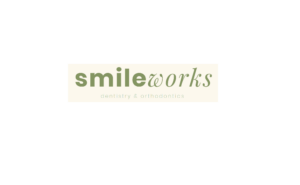What Type of Doctor Treats Varicose Veins? varicose veins are a common medical condition that affects millions of people worldwide. While they are often seen as a cosmetic concern, varicose veins can lead to various health issues if left untreated. In this article, we will explore the type of doctors who treat varicose veins and discuss whether varicose vein treatments are covered by insurance. Understanding your treatment options and insurance coverage can help you make informed decisions about managing varicose veins and maintaining your overall health.
What Are Varicose Veins?
Varicose veins are swollen, twisted veins that typically occur in the legs. They are the result of damaged or weakened valves in the veins, which are responsible for regulating blood flow back to the heart. When these valves malfunction, blood can pool in the veins, causing them to become enlarged and visibly raised beneath the skin’s surface.
Common symptoms of varicose veins include pain, aching, and a heavy sensation in the legs. Patients may also experience itching, burning, or muscle cramps in the affected area. In severe cases, varicose veins can lead to complications such as skin ulcers and blood clots. This makes it important to seek treatment to alleviate symptoms and prevent further health issues.
What Type Of Doctor Treats Varicose Veins?
If you suspect you have varicose veins or have already been diagnosed with this condition, it’s essential to know which healthcare professionals can help you. Several types of doctors and specialists are qualified to diagnose and treat varicose veins:
- Vascular Surgeon: Vascular surgeons are medical professionals who specialize in the diagnosis and treatment of diseases related to the circulatory system, including varicose veins. They can perform surgical procedures and minimally invasive interventions to address varicose veins effectively.
- Phlebologist: Phlebologists are specialists who focus on the treatment of vein-related disorders, including varicose veins. They are highly knowledgeable about the latest non-surgical treatments, such as sclerotherapy and endovenous laser treatment (EVLT).
- Interventional Radiologist: These doctors specialize in performing minimally invasive procedures using imaging guidance. For varicose vein treatment, they can use techniques like radiofrequency ablation or laser therapy to close off and shrink the affected veins.
- Dermatologist: Dermatologists often treat varicose veins, especially when the condition is primarily cosmetic. They may use sclerotherapy or laser therapy to improve the appearance of varicose veins.
- General Practitioner (GP): Your family doctor or general practitioner can be the first point of contact for varicose vein concerns. They can diagnose the condition, provide initial recommendations, and refer you to a specialist if needed.
- Cardiologist: Although cardiologists primarily focus on heart-related issues, they can also provide guidance on the management of varicose veins, as the circulatory system is closely related.
Are Varicose Vein Treatments Covered By Insurance?
The coverage of varicose vein treatments by insurance depends on several factors, including the severity of your condition, the type of treatment required, and your insurance plan. In many cases, insurance companies consider varicose vein treatments as medically necessary when they cause symptoms or complications.
Common Insurance Coverage Scenarios For Varicose Vein Treatments Include:
- Medical Necessity: If your varicose veins are causing pain, discomfort, or complications such as ulcers or blood clots, your treatment may be considered medically necessary. In such cases, insurance is more likely to cover the cost of evaluation and treatment.
- Conservative Management: Insurance companies may require you to undergo conservative treatments first, such as wearing compression stockings or making lifestyle changes, before covering more invasive procedures.
- Pre-authorization: Some insurance plans may require pre-authorization for specific treatments. It’s essential to communicate with your healthcare provider and insurance company to ensure proper documentation and approvals.
- Cosmetic Concerns: If your varicose veins are primarily a cosmetic issue and not causing significant discomfort or health problems, insurance is less likely to cover treatments. In such cases, you may need to explore self-payment or financing options.
- Specific Treatments: The type of varicose vein treatment can also affect coverage. Some procedures, like endovenous laser treatment or radiofrequency ablation, are often covered when medically necessary. However, purely cosmetic treatments may not be covered.
- Insurance Plan: The terms and conditions of your insurance plan play a significant role in determining coverage. It’s important to review your policy and consult with your insurance provider to understand what is covered and what isn’t.
To Navigate The Insurance Process For Varicose Vein Treatments, Consider The Following Steps:
- Consult with a specialist: Schedule an appointment with a healthcare professional who specializes in vein disorders. They can evaluate your condition and determine whether treatment is necessary.
- Verify insurance coverage: Contact your insurance company to confirm the extent of coverage for varicose vein treatments. This step will help you understand your financial responsibility.
- Obtain pre-authorization: If required, work with your healthcare provider to obtain any necessary pre-authorization for the recommended treatment.
- Keep thorough records: Maintain all medical records, bills, and communication related to your varicose vein treatment. These documents can be essential if you need to appeal a denied claim or for tax purposes.
Conclusion
Are Varicose Vein Treatments Covered by Insurance? varicose veins are a common and often misunderstood medical condition. Knowing which type of doctor to consult for diagnosis and treatment is crucial for managing this condition effectively. Additionally, understanding the nuances of insurance coverage can help you navigate the financial aspects of varicose vein treatments. Whether your treatment is covered by insurance or not, seeking timely medical care and exploring your options with healthcare professionals can lead to improved quality of life and overall health.











